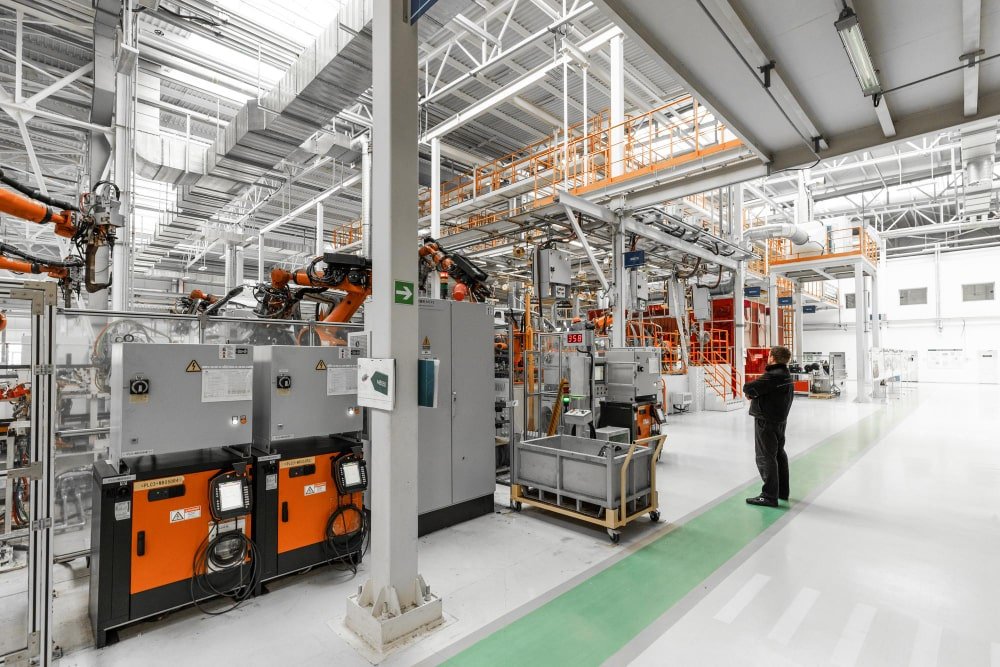Industrial engineering is a field that focuses on designing, improving, and optimizing complex systems, processes, and organizations. It combines principles of engineering, mathematics, and social sciences to achieve efficient and effective operations in various industries such as manufacturing, healthcare, logistics, and services. The goal of industrial engineering is to increase productivity, reduce waste, and improve quality by applying various analytical, experimental, and technological tools and techniques.
One of the key features of industrial engineering is its focus on systems thinking. Industrial engineers view organizations as interconnected components that must work together in a coordinated manner to achieve overall objectives. By analyzing the inputs, processes, and outputs of a system, they can identify deficiencies and bottlenecks and suggest solutions that improve the system’s performance. For example, an industrial engineer might analyze a manufacturing process to determine how to reduce the time it takes to produce a product, minimize waste of raw materials, or improve worker safety.
Another important aspect of industrial engineering is the use of mathematical models and simulation tools to predict and improve system performance. Industrial engineers use mathematical models to represent complex systems and processes and employ simulation tools to test different scenarios and assess the impact of various decisions. For example, an industrial engineer might use simulation tools to optimize warehouse layout, determine the optimal number of staff needed to operate a call center, or evaluate the impact of introducing a new production line to a manufacturing facility.
Industrial engineering also involves the use of technology to automate and improve processes. Advances in computer technology, robotics, and artificial intelligence have enabled industrial engineers to design and implement intelligent systems that can monitor and control operations in real-time. For example, an industrial engineer might develop an automated system for scheduling shipments, monitoring inventory levels, and forecasting demand, allowing the company to optimize its supply chain efficiency and reduce costs.
Industrial engineering involves applying social science principles to improve the human aspects of work systems. Industrial engineers recognize that the success of any system depends not only on its technical performance but also on the people who operate it. By applying principles of psychology, sociology, and organizational behavior, industrial engineers can design work systems that enhance employee satisfaction, motivation, and productivity. For example, an industrial engineer might redesign a job to make it more feasible, provide training to improve employee skills, or implement incentive programs to encourage high performance.
In conclusion, industrial engineering is a vital field that plays a key role in enhancing productivity, reducing waste, and improving the quality of operations in various industries. Industrial engineers use their knowledge of systems, mathematics, and technology to improve complex systems and processes, and their understanding of human behavior to design work systems that promote employee well-being and productivity. Industrial engineering is an exciting field that offers excellent job opportunities and plays a vital role in driving innovation and progress in society.
Job Opportunities:
-
Manufacturing Engineer: In this role, you will work on improving the efficiency and productivity of manufacturing processes. You may also be responsible for designing and implementing new manufacturing processes.
-
Operations Manager: As an operations manager, you will oversee the daily operations of a company or organization. This may include managing production schedules, supervising staff, and ensuring that all processes run smoothly.
-
Supply Chain Analyst: In this role, you will be responsible for analyzing supply chain data to identify areas for improvement. You may also be responsible for developing strategies to improve supply chain performance and reduce costs.
-
Process Improvement Specialist: As a process improvement specialist, you will work on identifying inefficiencies in business processes and developing strategies to improve them. This may include analyzing data, conducting process audits, and implementing new processes and procedures.
-
Quality Engineer: In this role, you will be responsible for ensuring that products and processes meet quality standards. You may also be responsible for developing and implementing quality control processes.
These are just a few examples of the many job opportunities available for industrial engineers. I hope this information is helpful as you search for a job. If you have any questions or would like more information, please feel free to reach out to me.


 العربية
العربية Türkçe
Türkçe





